Two members of the Armed Forces of Mali (FAMa) were killed and 10 injured in a “complex” attack on a base in Tarkint in the Gao region on Tuesday, January 29, the ministry of defense said.
“On this day, January 29, 2019, the Tarkint FAMa post in the Gao region was the subject of a complex attack. During this operation, FAMa lament two (02) dead and ten (10) wounded,” Colonel Major Mamadou Diao said in a ministry of defense release.
The attack involved a “car bomb,” Studio Tamani and AMAP reported.
Tarkint is around 140 km (87 miles) north of Gao.
Update January 31 The Support Group for Islam and Muslims (JNIM) claimed that it was responsible for the attack, which it said began with a suicide car bomb (SVBIED), followed by a 40-minute battle.
The incident comes after a string of reported bomb attacks against security forces in recent days.
An armed forces vehicle forces was struck by a roadside bomb on January 28 in Toyé in the Ségou region killing one gendarme and injuring two others, Studio Tamani reported.
Update January 31 JNIM claimed that it was responsible for that attack.
Three days earlier on January 25, “13 alleged jihadists” were arrested in the Toyé forest during FAMa operations in the area. Those operations followed an attack on the security forces in Toyé on January 21 in which a soldier was killed and a vehicle seized.
On January 28, the Support Group for Islam and Muslims (JNIM) claimed in a statement that it was responsible for two bomb attacks on Malian forces on January 24. It said first attack destroyed a vehicle between Boni and Nokara in the Mopti region and the second destroyed a vehicle “on guard duty” near Boni.
In his latest quarterly report on Mali, U.N. Secretary-General Antonio Guterres highlighted the continued growth of improvised explosive device attacks.
“The number of attacks of this type has increased steadily since January 2018, reaching 192, while there had been only 124 during the same period in 2017,” according to the report.
Guterres said more than half of the attacks by armed groups targeted Malian security forces, especially in the central Mopti region and Timbuktu and Gao in the north.
On January 25, two United Nations peacekeepers from Sri Lanka were killed and six were injured in a roadside bomb attack near Douentza in the Mopti region of central Mali, the U.N. Mission in Mali (Minusma) said.
Five days earlier, gunmen killed 10 Chadian peacekeepers and injured at least 25 others in an attack on a U.N. camp in Aguelhok, northern Mali on January 20.
Both attacks on peacekeepers were claimed by JNIM.
JNIM is Al-Qaeda’s branch in Mali, and was formed in 2017 by the merger of several smaller groups including the Sahara branch of Al-Qaeda in the Islamic Maghreb, Ansar Dine and Al-Mourabitoun. Its leadership has pledged allegiance to Al-Qaeda leader Ayman al-Zawahiri.
The recent unrest in the Sahel began in Mali in 2012 with Tuareg separatist uprising against the state, which was exploited by Islamist extremists linked to al-Qaeda who took key cities in the desert north.
France began its Operation Serval military intervention in its former colony early the next year, driving the jihadists from the towns, but the militant groups morphed into more nimble formations operating in rural areas, sometimes winning over local populations by providing basic services and protection from bandits.
The insurgency has gradually spread to central and southern regions of Mali, and across the borders into neighboring Burkina Faso and Niger.
Large swathes of the country remain outside government control, despite a 2015 peace accord designed to isolate the Islamists.
The French mission evolved into the current Operation Barkhane, which has roughly 4,500 French personnel deployed with a mandate for counter-terrorism operations across the region.
Troops deployed to Barkhane work alongside the U.N. Minusma stabilization mission in Mali, which began in 2013 and has about 12,000 troops and 1,750 police deployed, as well as the G5 Sahel joint counter-terrorism force that aims to train and deploy up to 5,000 personnel.


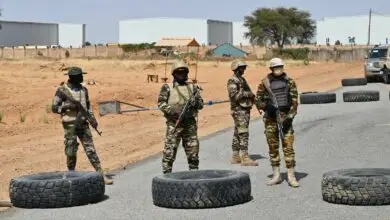


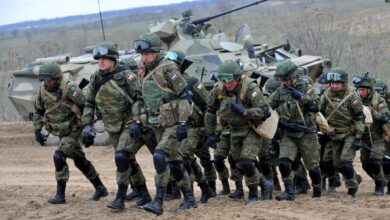

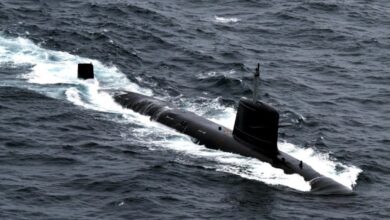
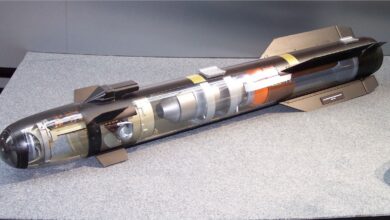

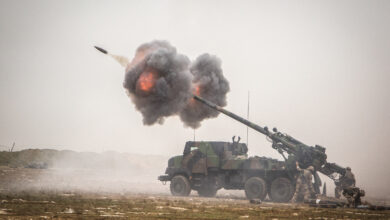

One Comment